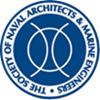基于 KDE 的船舶碰撞候选航道风险评估
IF 1
4区 工程技术
Q3 ENGINEERING, CIVIL
引用次数: 0
摘要
为了研究海上交通风险的地理分布特征,建立了潜在事故情景的统计表示和宏观碰撞风险模型,生成了海上交通风险较高的水域。为了更好地评估航线中候选船舶碰撞风险,提出了一种改进的自适应带宽核密度估计(KDE)方法。该算法用于船舶航线系统的风险降低评估,该系统在拥挤的港口航道中调度和调整海上交通。更大的带宽可以使热点区域在全球范围内更加明显。此外,带宽与点的色散呈正相关。对于点分布稀疏的数据,应使用较大的带宽,而对于兴趣点分布密集的数据,则应考虑较小的带宽。结果表明,优化带宽后的KDE能够拟合船舶相遇分布,获得船舶相遇的频繁点。船舶路由系统建立前后的KDE结果对比表明,船舶路由航道建立后,船舶碰撞候选热点减少。本文章由计算机程序翻译,如有差异,请以英文原文为准。
Risk Assessment Based on KDE of Ship Collision Candidates for Ship Routing Waterway
To study the geographical distribution characteristics of maritime traffic risks, statistical representations of potential accident scenarios and macro collision risk models were established, and the waters with higher maritime traffic risks were generated. To better evaluate the risk of ship collision candidates during routing waterways, an improved adaptive bandwidth kernel density estimation (KDE) is proposed. This proposed algorithm is used for evaluating risk reduction of the ship routing system, which schedules and adjusts maritime traffic in congested harbor waterways. Larger bandwidth can make the hot spot region more obvious on a global scale. Moreover, the bandwidth is positively correlated with the dispersion of points. Concerning the data with sparse point distribution, a larger bandwidth should be used whereas, for data with dense points of interest, a smaller bandwidth should be considered. The results show that the KDE, with optimized bandwidth, can fit the ship encountering distribution and obtain the frequent spots for ship encountering. The comparison between KDE results before and after the ship routing system shows that the hot spots of ship collision candidates are reduced after the ship routing waterway is established.
求助全文
通过发布文献求助,成功后即可免费获取论文全文。
去求助
来源期刊

Journal of Ship Research
工程技术-工程:海洋
CiteScore
2.80
自引率
0.00%
发文量
12
审稿时长
6 months
期刊介绍:
Original and Timely technical papers addressing problems of shipyard techniques and production of merchant and naval ships appear in this quarterly publication. Since its inception, the Journal of Ship Production and Design (formerly the Journal of Ship Production) has been a forum for peer-reviewed, professionally edited papers from academic and industry sources. As such, it has influenced the worldwide development of ship production engineering as a fully qualified professional discipline. The expanded scope seeks papers in additional areas, specifically ship design, including design for production, plus other marine technology topics, such as ship operations, shipping economic, and safety. Each issue contains a well-rounded selection of technical papers relevant to marine professionals.
 求助内容:
求助内容: 应助结果提醒方式:
应助结果提醒方式:


